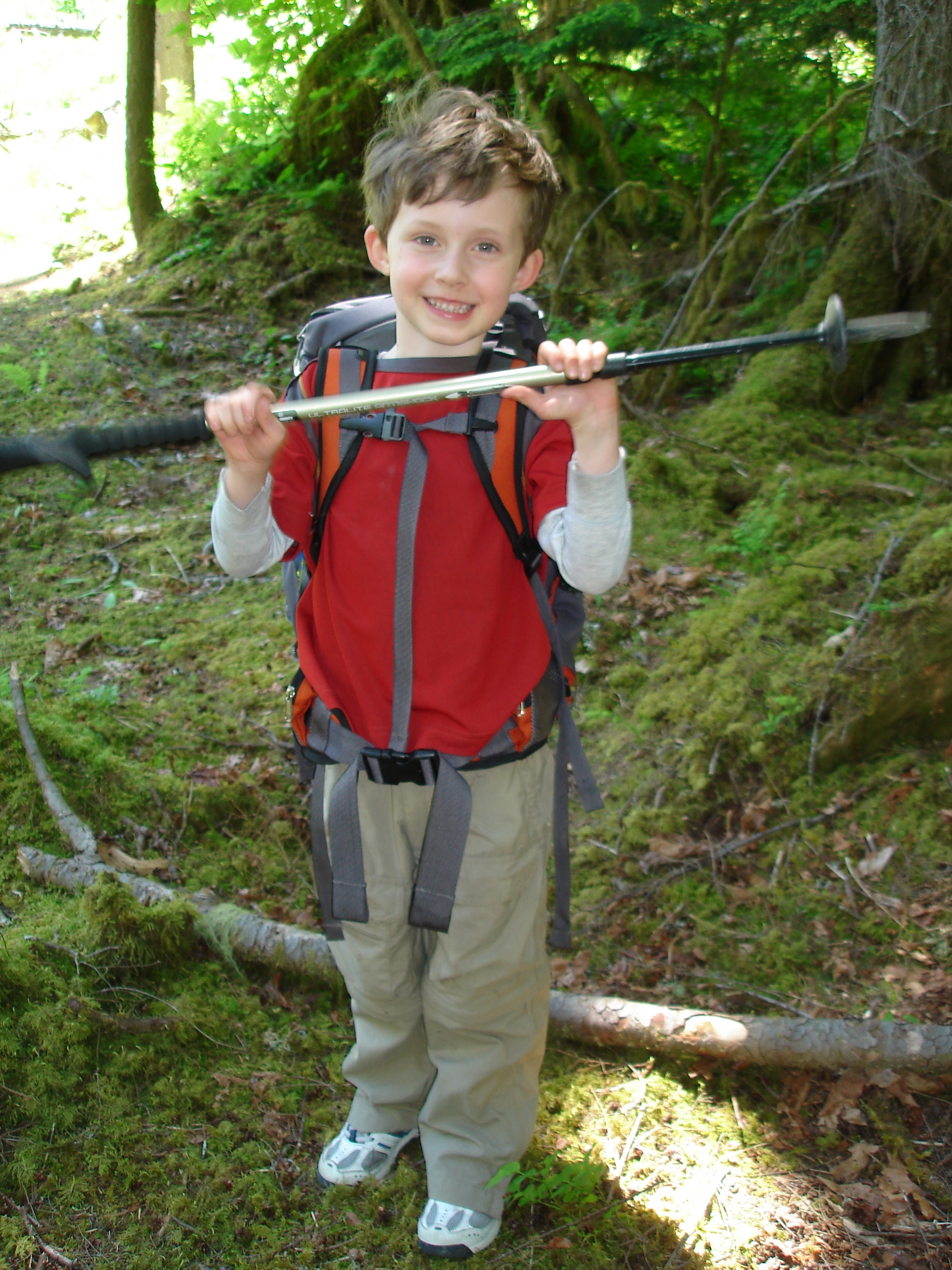I’ve had a lot of thoughts swirling through my head lately. Wondering if it’s good to take so much time away from home responsibilities and travel around to find cool hikes to do. Wondering about myself and my drive to get out into nature. Wondering about my kids and their education, and what do they need most at this time in their little lives. So I’m delving in to the research – reading Richard Louv’s books again (Last Child in the Woods and The Nature Principle). Looking for nuggets of information that maybe can help explain something about my quirks and my need to get into nature. Reading books about the spiritual aspects of nature (I’ll share more when I actually finish one!) And I came across an article tonight that helped enlighten me about one piece of this puzzle.

I stumbled on a scientific study by Nancy M. Wells and Gary W. Evans. The title is “Nearby Nature: A Buffer of Life Stress Among Rural Children.” Reading it brought me back to the days at the UW when I had to read bunches of scientific articles for classes. I recommend you take the time to hop over and read it, if you are up for the challenge! Luckily, with such articles, there is usually a section in the beginning that summarizes the findings; you can read the summary to see if there is anything of interest to you, and get the gist of the findings. This article brings up some interesting points, and the authors find that having nature nearby helps to buffer the negative effects of stressful life events. In other words, having adequate access to nature helps kids cope better.
I think back to my son when he was in first grade in a traditional public school. One of his big complaints was that “when they made the playground, they took out all the trees and bushes, and now there is nowhere I can go to be in nature.” I thought that was an insightful, quirky, compelling observation. My son was feeling the lack of nature in his school day; recess time didn’t help him reconnect with nature, decompress, or de-stress from the long day of learning. The playground was partially paved, and part was covered with wood chips. They had brand new play equipment, and it should have been a fun place to play. But it was a barren wasteland to this sensitive little guy, who knew already that he needed more time in nature.

I feel it, too, when I don’t get enough time in nature. I suppressed that need for many years, fearing that it was selfish, yet being conflicted that I felt most at home in the wilderness. And life with children the past ten years has brought many major stressful life events: multiple surgeries for both me and my husband, long unemployments, monetary crises, health scares (including cancer), losing a baby, transitioning to homeschooling, plus all the daily stresses of modern life. I worry sometimes about my children and the things they have been through already. As much as I try to shelter them, I know the pain trickles down to them.

Yet they instinctively know that they need to get outside. They beg to go hiking, or to the beach, or even to ride their bikes around the block. My son took over part of the garden this year, and they both are fascinated watching the birds at our feeders and in the yard and greenbelt behind our home. They yearn for nature time when they aren’t getting enough, and thank me when I take them somewhere beautiful. Their idea of the perfect hike is to walk somewhere with water to play in and stay all day (or overnight!). They collect rocks and sticks and pine cones and flowers, and read field guides and non-fiction from the nature sections of the library.

This yearning for nature is powerful for both them and for me. Wells and Evans pronounce that kids’ preference for being in nature is “neither frivolous or insignificant.” They quote another article by S. Kaplan and R. Kaplan (Humanscape: Environments for People) that affirms in other life forms “An organism must prefer those environments in which it is likely to thrive.” Most children prefer the outdoors when given the choice; “disconnection negatively affects their well-being” (Wells and Evans).

This scholarly perspective helps me to understand myself and my children better, and validates why I do what I do. Getting my kids out into nature is imperative for all of our mental health and well-being. We need the space, time, and fresh air. We need the open vistas and natural noises as an antidote to closed-in-spaces and technological gadgets running our lives. We need to have the time and mental space to ponder deeper questions of faith. There will be plenty of time for the kids to learn their times tables and U.S. History. If I can build a firm foundation of healthy bodies and strong spirits, they will be able to learn whatever they need in life, and have the tools to deal with whatever stressful life events are in store for us in the future.


Leave a Reply